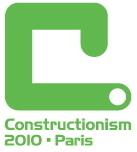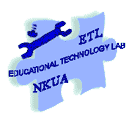

Film Collection > Plenary Talks
Constructivism(s): Shared roots, crossed paths, multiple legacies Edith K. Ackermann |
||||
| (click here to watch the video) | ||||
This paper examines the shared roots and crossed paths between Jean Piaget’s constructivism, what Seymour Paper refers to as constructionism”, and socio-cultural theories as epitomized by Lev Vygotsky. We do so in the light of more situated, pragmatic, and ecological approaches to human cognition. All these views are developmental (stressing the genesis children's interests and abilities over time), experiential (in the sense that knowledge is rooted in sensori-motor activity) and interactionist (people are seen as constructing their knowledge by transforming the world). Yet, the views also differ, each highlighting some aspects of how children grow and learn, while leaving other questions nanswered. Piaget’s main contribution was to flesh out what is common in children’s ways of thinking at different stages of their cognitive development and, more important, how consistent, robust, and generally “adapted” their views are. The theory stresses the progressive de-contextualization of knowledge (from here-and-now to then-and-there) and identifies some of the hidden mechanisms (internal reorganizations) that drive human cognitive development. Papert, in contrast, stresses how individuals learn in context and how they use their own—and other people's—externalizations as objects to think with, especially as their convictions break down. His approach is more situated. Papert is particularly interested the role of new media in human learning. Both Papert and Vygotsky shed light on the articulations between direct and mediated experience (from action and tool-use to enactments, language, and symbol-use). Yet Vygotsky and the Russian school have paid much closer attention to the role of caring adults and peers in a child's initiation to her culture. They remind us that it takes a whole village to raise a child. Integrating the views helps rethink how children come to make sense of their experiences, and how they find their own places—and voices—in the world. At once world-makers, world-readers, and dwellers in the world, human infants are granted from birth with the abilities to optimize exchanges with people and things by moving in and out of contexts, by shifting perspectives, and by switching roles or standpoint. They are extraordinary learners, and much can be learned from them. Lastly, while mostly inner-driven and curious, children need caring adults, secure grounds, and engaging peers and props to thrive and grow, Tools, media, and cultural artifacts are the tangible forms through which they explore their surrounds, xpress their thoughts, and share the fun with others—and the traces left by those who came before (cultural heritage) become a terrain for newcomers to create their paths. |
||||
 |
Hosted by Educational Technology Lab @ National and Kapodistrian University of Athens |